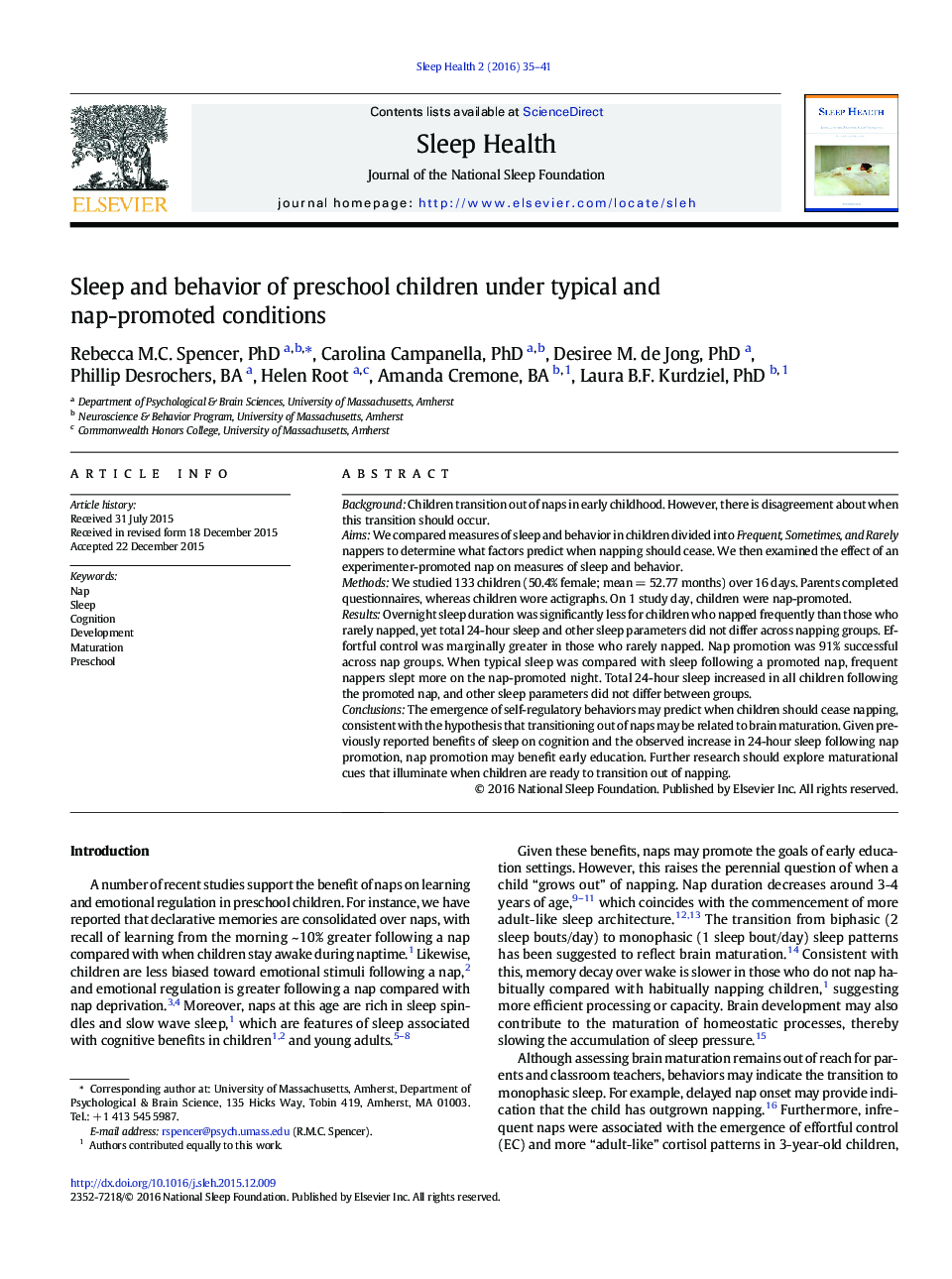| Article ID | Journal | Published Year | Pages | File Type |
|---|---|---|---|---|
| 916306 | Sleep Health | 2016 | 7 Pages |
BackgroundChildren transition out of naps in early childhood. However, there is disagreement about when this transition should occur.AimsWe compared measures of sleep and behavior in children divided into Frequent, Sometimes, and Rarely nappers to determine what factors predict when napping should cease. We then examined the effect of an experimenter-promoted nap on measures of sleep and behavior.MethodsWe studied 133 children (50.4% female; mean = 52.77 months) over 16 days. Parents completed questionnaires, whereas children wore actigraphs. On 1 study day, children were nap-promoted.ResultsOvernight sleep duration was significantly less for children who napped frequently than those who rarely napped, yet total 24-hour sleep and other sleep parameters did not differ across napping groups. Effortful control was marginally greater in those who rarely napped. Nap promotion was 91% successful across nap groups. When typical sleep was compared with sleep following a promoted nap, frequent nappers slept more on the nap-promoted night. Total 24-hour sleep increased in all children following the promoted nap, and other sleep parameters did not differ between groups.ConclusionsThe emergence of self-regulatory behaviors may predict when children should cease napping, consistent with the hypothesis that transitioning out of naps may be related to brain maturation. Given previously reported benefits of sleep on cognition and the observed increase in 24-hour sleep following nap promotion, nap promotion may benefit early education. Further research should explore maturational cues that illuminate when children are ready to transition out of napping.
